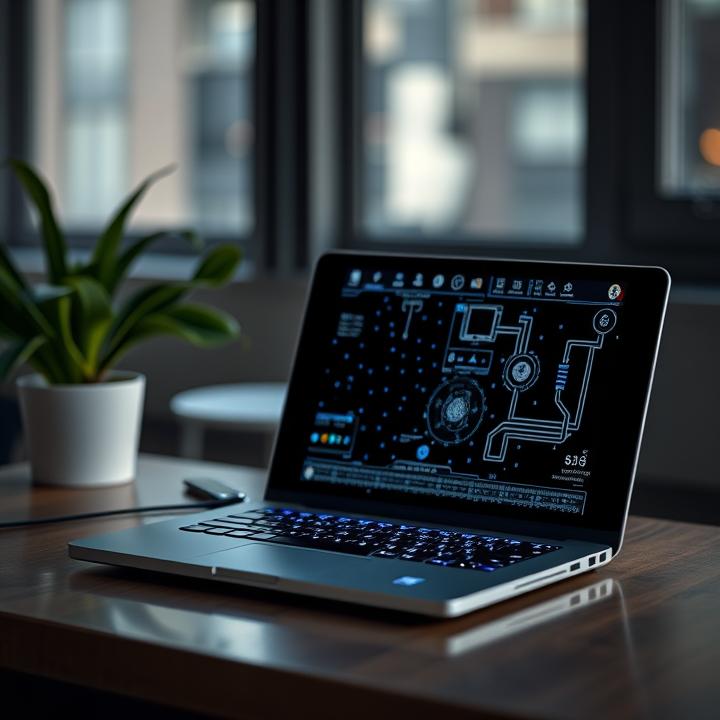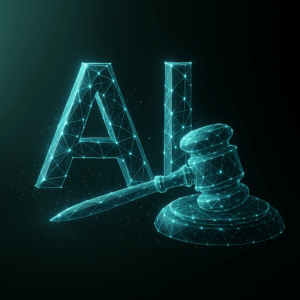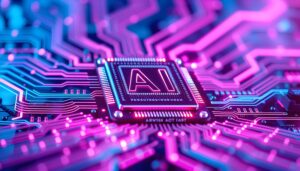
An AI PC is a personal computer enhanced with artificial intelligence (AI) capabilities, designed to automate tasks, enhance user experiences, and improve productivity through machine learning, natural language processing, and more.
With the rapid advancement of technology, the concept of an AI PC is emerging as a significant development in the world of personal computing. An AI PC (Artificial Intelligence Personal Computer) is a computer system designed to incorporate artificial intelligence technologies directly into the device, making it smarter and more efficient at completing tasks, learning user behaviors, and enhancing overall productivity. This innovation represents a shift from traditional PCs, moving towards systems that not only process information but also adapt, learn, and respond in more intuitive ways.
In this article, we will explore what makes an AI PC unique, its key components, and how it is revolutionizing the computing experience for both everyday users and professionals.
1. Defining an AI PC: What Sets it Apart?
An AI PC integrates artificial intelligence into its core operations, using advanced technologies like machine learning, natural language processing (NLP), and computer vision to offer smarter, more personalized computing experiences. Unlike traditional PCs, which rely on predefined programs and user commands, an AI PC can learn from data, automate complex tasks, and make intelligent decisions based on patterns and behavior.
Incorporating AI allows the PC to improve its performance over time, adapt to the needs of the user, and provide proactive solutions without constant input. These systems are built with dedicated hardware and software optimized for AI tasks, setting them apart from standard PCs.
Key Characteristics of an AI PC:
- Intelligent Task Automation: AI PCs can automate repetitive or time-consuming tasks such as scheduling, file organization, and even content creation, saving users time and effort.
- Personalized User Experiences: By learning user preferences, an AI PC can recommend actions, optimize workflows, and predict future needs.
- Natural Language Interaction: Using voice assistants powered by NLP, AI PCs can interact with users in more natural, human-like ways, such as through voice commands or context-aware responses.
- Advanced Security Features: AI enhances security by detecting and responding to threats in real time, protecting sensitive information from cyberattacks.
2. Key Technologies Driving AI PCs
Several foundational AI technologies are integrated into AI PCs, making them more powerful and responsive than traditional computing systems.
2.1 Machine Learning (ML)
Machine learning allows AI PCs to improve their performance over time by analyzing large amounts of data and identifying patterns. ML models are built into AI PCs to perform tasks such as recognizing user behavior, automating processes, or enhancing system performance. For example, an AI PC can learn how a user prefers to organize files or which applications they use most frequently, and then optimize its operation accordingly.
2.2 Natural Language Processing (NLP)
Natural language processing (NLP) enables AI PCs to understand and process human language. This allows users to interact with their computers via voice commands or natural speech rather than relying solely on keyboard or mouse inputs. NLP is used in virtual assistants like Google Assistant, Cortana, or Alexa on AI PCs to handle tasks such as sending emails, setting reminders, or searching the web based on voice prompts.
2.3 Computer Vision
Computer vision is a technology that allows AI PCs to process and interpret visual data, such as images and videos. With AI-powered cameras or sensors, an AI PC can recognize faces, objects, or even documents and use this information to perform specific actions, such as organizing photos or detecting potential security risks.
2.4 Neural Processing Units (NPUs)
To handle AI workloads efficiently, AI PCs are often equipped with neural processing units (NPUs) or other dedicated hardware designed to accelerate AI tasks. NPUs help process large-scale AI computations, such as real-time data analysis, AI-enhanced graphics, or machine learning models, much faster than traditional central processing units (CPUs) or graphics processing units (GPUs).
3. Applications of AI in PCs: Enhancing Productivity and Everyday Use
The integration of AI into personal computers brings several benefits to both casual users and professionals, allowing for greater productivity, convenience, and enhanced user experiences.
3.1 Productivity Enhancements
AI PCs can automate repetitive tasks, such as organizing files, scheduling meetings, or managing emails. For example, an AI PC can prioritize emails based on urgency or automatically recommend the best time to schedule meetings based on participants’ calendars. AI-enhanced tools such as Smart Compose and Predictive Text help users write faster and more efficiently by suggesting text as they type.
3.2 AI-Powered Creativity Tools
For creative professionals such as graphic designers, video editors, or musicians, AI PCs offer tools that streamline the creative process. AI-assisted video editing can automatically cut, trim, and enhance video footage, while AI-driven design tools can suggest layouts, color schemes, or even generate visual content based on the user’s input. AI-powered audio mixing tools allow musicians to create music faster by automating aspects of the mixing process.
3.3 Enhanced Security and Privacy
With AI-powered security, AI PCs are able to detect and prevent cyberattacks more effectively than traditional systems. AI models can analyze incoming data, identify anomalies, and respond to potential threats in real time, protecting the user’s data. Additionally, facial recognition and fingerprint scanning technologies, often powered by AI, add an extra layer of protection, ensuring that only authorized users can access the device.
3.4 Smart Home Integration
AI PCs can also integrate with smart home systems, allowing users to control home devices, such as lights, thermostats, or security cameras, directly from their computer. Through AI-powered assistants like Google Assistant or Amazon Alexa, users can manage their smart home ecosystem seamlessly by issuing voice commands to their PC.
4. AI PCs in the Workplace: Transforming Business Efficiency
AI PCs are already making an impact in the business world by improving workflow efficiency, reducing manual labor, and offering data-driven insights for decision-making. Some of the key areas where AI PCs are transforming businesses include:
4.1 Automating Business Operations
AI PCs can handle routine business operations, such as generating reports, managing inventory, or tracking project timelines. AI tools are used to process large datasets quickly, identify trends, and offer insights that help businesses make better decisions.
4.2 Enhanced Collaboration
AI-enabled tools help facilitate better collaboration in teams. AI-powered virtual meeting assistants can take notes during meetings, transcribe conversations, and highlight important action items. Collaboration tools enhanced with AI allow team members to communicate more effectively, even across different time zones.
4.3 AI-Powered Customer Support
In customer service, AI PCs can improve support operations by handling queries through virtual chatbots or virtual agents. These AI-driven systems are capable of resolving common issues, freeing up human agents to focus on more complex tasks.
5. The Future of AI PCs: What’s Next?
As AI continues to evolve, the capabilities of AI PCs will become even more advanced. In the future, we can expect AI PCs to include even more intuitive interactions, deeper integration with other devices, and expanded functionality across a variety of tasks. Edge computing and real-time data processing will allow AI PCs to handle even more data-heavy applications, while continuous advancements in machine learning will make these systems even more adept at predicting user needs and optimizing workflows.
Some of the expected future trends include:
- Greater AI-Driven Personalization: AI PCs will become better at learning individual preferences, creating a more personalized computing experience for each user.
- Improved Voice and Gesture Control: Enhanced NLP and gesture recognition will make interacting with AI PCs more intuitive and natural.
- Increased Efficiency in Professional Applications: AI PCs will revolutionize industries such as healthcare, finance, and engineering by automating complex, time-consuming tasks.
The rise of the AI PC represents a significant shift in how personal computers function, transforming them from simple data-processing devices to intelligent machines that learn, adapt, and enhance the user experience. With applications ranging from improved productivity and security to creative enhancements and smart home integration, AI PCs are set to redefine how we interact with technology in both personal and professional environments. As AI continues to advance, the capabilities of AI PCs will expand, providing users with even greater efficiency, convenience, and personalization.


